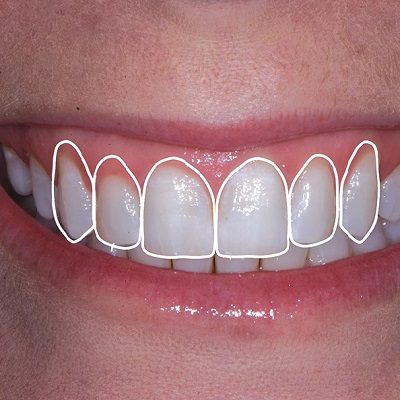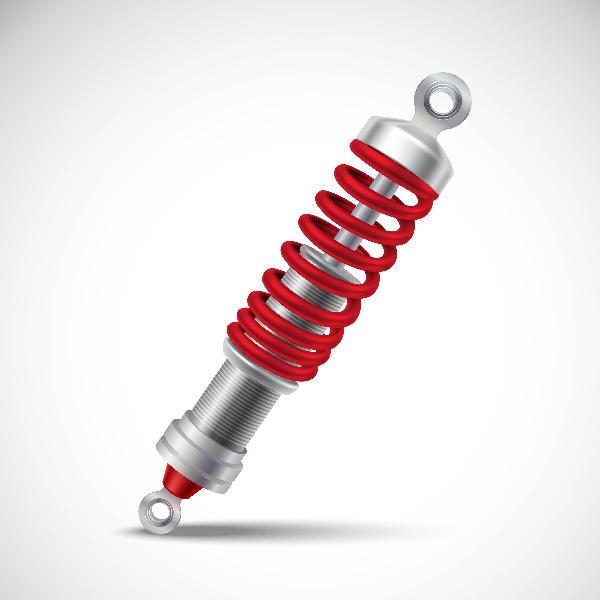15 Noticeable Behaviors Of People Pretending To Be Happy

Some people are masters at hiding their pain behind a smile. They seem like they’ve got it all together, laughing and looking happy on the outside, but underneath that surface, they’re struggling. If you’ve ever felt like something was off with someone who looks perfectly fine on the outside, you might be picking up on subtle clues. Here are the hidden behaviors of people who are pretending to be happy but are really crumbling inside.
1. They’re Always “Fine”

When someone always says they're “fine,” it’s usually a red flag. According to psychologists, those masking distress often default to neutral or positive answers to avoid deeper questions about their well-being. This behavior isn’t about honesty—it’s about survival. Saying “I’m fine” becomes a reflex, not a reflection of their emotional state. It helps them avoid vulnerability and maintain the illusion that everything’s okay.
What they're really saying is, “Please don’t dig any deeper.” It’s not that they don’t want to connect—it’s that they fear what might happen if they let the pain out. Keeping up the act feels safer than being real. But that mask eventually starts to crack, especially around people who see through it. Pay attention when someone always dodges the truth with a smile.
2. They Keep Themselves Busy All the Time

Nonstop busyness is one of the most common distractions from emotional pain. When someone packs every minute of their day with obligations, projects, or noise, it's often to avoid sitting alone with their thoughts. Stillness becomes terrifying when it threatens to expose what’s underneath. So they run, plan, organize, and overbook themselves as a way of coping. Constant activity isn’t always ambition—it’s sometimes an escape.
AdvertisementAdvertisement#«R49e4kr8lb2m7nfddbH1» iframe AdvertisementAdvertisement#«R89e4kr8lb2m7nfddbH1» iframeThe problem is, burnout usually follows. Emotional suppression paired with physical overexertion is a dangerous combo. They might seem high-functioning, but inside, they’re crumbling from the weight of what they won’t face. You’ll know something’s off when their energy feels frantic, not focused. They’re not thriving—they’re avoiding.
3. They’re the “Life of the Party”

Being the loudest or most fun person in the room doesn’t mean someone’s okay. In fact, many people with hidden depression adopt a “performer” persona to cover what they’re really going through. They keep the spotlight on their jokes, their charm, their laughter—anything to deflect from their pain. To everyone else, they seem upbeat and magnetic. But underneath the performance is often a profound sense of loneliness.
This kind of masking is emotionally exhausting. They give all their energy away to keep others entertained while secretly hoping no one sees through them. The party ends, and they go home to silence and sadness. That contrast is jarring, and they live with it daily. Their joy is often real—but it’s only part of the story.
4. They Give Generic Answers When Things Get Deep

When conversations shift into emotional territory, these people suddenly retreat. They’ll answer with phrases like, “It’s nothing,” or “I’m just tired,” to shut things down before they get too real. It’s not that they don’t trust you—it’s that they don’t trust their emotions not to overwhelm them. Vulnerability feels like a trap they won’t come back from. So they keep it surface-level and safe.
AdvertisementAdvertisement#«R4ie4kr8lb2m7nfddbH1» iframe AdvertisementAdvertisement#«R8ie4kr8lb2m7nfddbH1» iframeThe more you push, the more they deflect. They’re not trying to be cold—they’re trying to stay in control. Talking about their pain means acknowledging it, and that’s something they’re not ready for. Instead, they steer the conversation away or make light of it. It’s their way of protecting themselves from emotional exposure.
5. Their Social Media Is A Highlight Reel

If their social feed looks perfect, it’s worth asking why. Psychologists note that people who post excessively positive content may be compensating for emotional struggles offline. You’ll see curated photos, filtered smiles, and captions about gratitude—even when they’re falling apart behind the scenes. Social media becomes a mask that helps them maintain control over how the world sees them. It’s less about connection and more about distraction.
The irony is, the more they post, the more isolated they often feel. They crave validation but fear real vulnerability. Their online persona may thrive, but their real-life emotions are buried. It’s not deceit—it’s self-protection. And it’s incredibly common in people who are emotionally overwhelmed.
6. They Avoid Alone Time

Silence can feel unbearable when you’re hiding from yourself. That’s why people who are hurting often fill their lives with constant company, noise, or screen time. Being alone means sitting with thoughts and emotions that are too heavy to unpack. They’ll avoid that at all costs—even if it means staying busy to the point of exhaustion. Solitude becomes something they fear, not crave.
AdvertisementAdvertisement#«R4re4kr8lb2m7nfddbH1» iframe AdvertisementAdvertisement#«R8re4kr8lb2m7nfddbH1» iframeYou’ll notice they’re always with someone, always online, or always distracted. Stillness triggers anxiety, and they’ve trained themselves to outrun it. But emotional pain doesn’t disappear just because you keep moving. Eventually, that avoidance catches up. And the longer they push it away, the louder it becomes in the quiet moments.
7. They Overcompensate by Helping Others

Some of the most selfless people are secretly struggling the most. Experts call this “altruism as distraction,” where helping others becomes a way to avoid dealing with personal pain. They’ll drop everything to solve someone else’s problem but won’t ask for help themselves. It makes them feel needed, valuable, and safe—especially when they’re emotionally unraveling. But it’s not sustainable.
This over-functioning often leads to burnout. They give and give until there’s nothing left, hoping that being useful will make the pain go away. Instead, it usually intensifies the internal pressure. Their generosity isn’t fake—it’s just also a form of emotional avoidance. And many don’t even realize they’re doing it.
8. Their Energy Seems Forced
 Happy,Friends,Holding,Each,Other
Happy,Friends,Holding,Each,OtherThere’s a difference between being naturally cheerful and trying to appear cheerful. People who are pretending often display a version of energy that feels strained or out of sync with the moment. Their smile doesn’t quite reach their eyes. Their voice might sound upbeat, but their body language gives away the fatigue. The enthusiasm feels like armor, not ease.
AdvertisementAdvertisement#«R54e4kr8lb2m7nfddbH1» iframe AdvertisementAdvertisement#«R94e4kr8lb2m7nfddbH1» iframeIf you watch closely, you’ll see the cracks. Forced laughter, exaggerated excitement, or constantly shifting attention are signs they’re trying too hard to maintain the façade. It’s not fake—it’s effortful. And that effort reveals just how hard they’re working to seem okay. Real joy doesn’t take that much work.
9. They Brush Off Compliments

Compliments should feel good, but for people struggling inside, they often sting. They might laugh awkwardly, change the subject, or turn the praise into a joke. That’s because deep down, they don’t believe the good things people say about them. Their self-worth is so low that even genuine validation feels uncomfortable. They’re not being humble—they’re hurting.
Pay attention to how someone reacts when you say something kind. Do they accept it, or deflect it? The more they dismiss praise, the more likely they’re hiding a deeper emotional struggle. It’s a subtle but telling behavior. Their discomfort reveals more than their words do.
10. They Focus On The Positive To An Uncomfortable Degree

Toxic positivity isn’t just annoying—it’s often a mask. When someone insists everything is “great” all the time and refuses to acknowledge anything negative, it can be a sign of emotional denial. They’ve convinced themselves that if they only speak in positives, the pain might disappear. But this relentless optimism can feel robotic and forced. It’s not about gratitude—it’s about emotional survival.
AdvertisementAdvertisement#«R5de4kr8lb2m7nfddbH1» iframe AdvertisementAdvertisement#«R9de4kr8lb2m7nfddbH1» iframeReal happiness leaves room for hard emotions. When someone avoids that entirely, it’s often because they’re afraid of what they’ll uncover. They’re not trying to deceive you—they’re trying to stay above water. But their refusal to go deep emotionally is telling. It’s a defense mechanism that reveals more than it hides.
11. They Rarely Open Up About Their Problems

They’ll listen to you for hours but never share their own burdens. To them, opening up feels unsafe—even with people they trust. They’ll say, “I don’t want to bother you,” or “It’s not a big deal,” to dismiss the topic. But the truth is, they’re used to bottling things up. Letting people in feels risky, even when they crave support.
This self-protection isn’t always conscious. It’s often the result of past experiences where vulnerability led to judgment or abandonment. So they choose silence, thinking it’s safer. But inside, they’re screaming for someone to ask again—gently, and without giving up. They don’t need fixing—they need patience and safety.
12. They’re Exhausted All the Time

Faking happiness takes energy—more than most people realize. Emotional suppression can lead to physical exhaustion, chronic fatigue, and burnout. These people might always look tired, no matter how much sleep they get. They drag through their day on autopilot, hoping no one notices how depleted they are. Exhaustion becomes their baseline, not an exception.
AdvertisementAdvertisement#«R5me4kr8lb2m7nfddbH1» iframe AdvertisementAdvertisement#«R9me4kr8lb2m7nfddbH1» iframeWhen your emotional load is too heavy to carry, your body starts to keep the score. Headaches, muscle tension, and foggy thinking are all signs of internal overwhelm. People who are “fine” but always tired are likely carrying more than they’re letting on. It’s not laziness—it’s emotional survival mode. Their body is begging for a break their mind won’t allow.
13. They Use Humor To Deflect

Humor can be disarming—but it’s also a shield. People who are emotionally crumbling often become the funniest in the room because it keeps others from getting too close. They’ll joke about pain before they’ll admit to feeling it. Sarcasm becomes a substitute for vulnerability. Laughing makes them feel in control when everything else feels too heavy.
If someone always turns serious moments into jokes, it’s worth paying attention. They’re not just being witty—they’re guarding something tender. Their humor is a wall that keeps real intimacy out. But if you gently stay present through the punchlines, they may eventually let you see what’s underneath. Humor, after all, is often rooted in truth.
14. They Say, “I’m Just Tired” A Lot

This phrase is the perfect emotional smokescreen. Saying “I’m just tired” gives people an easy way to explain why they’re off without diving into what’s really wrong. It’s vague enough to avoid more questions, and familiar enough that no one usually presses further. But the truth is, they’re not just tired—they’re emotionally drained. And they don’t know how to say that out loud.
AdvertisementAdvertisement#«R5ve4kr8lb2m7nfddbH1» iframe AdvertisementAdvertisement#«R9ve4kr8lb2m7nfddbH1» iframeIt’s a line you’ll hear again and again if you’re close to someone who’s pretending. It’s their way of waving a quiet white flag. They want someone to notice, but they don’t want to say the words. What they need is for someone to care enough to gently ask again. Not to fix—but just to see them.
15. They Keep Their Emotions Super Controlled

They never cry in front of others. They don’t raise their voice. They don’t seem rattled or reactive, even in moments when most people would be. That control might seem admirable—but often, it’s a sign they’re terrified of what would happen if they let go. Emotions feel like a threat, not a release.
Keeping everything bottled up gives them the illusion of power. But inside, the pressure is building. They’re scared that if they let one feeling escape, the floodgates will open and never stop. Emotional control isn’t always strength—it’s sometimes fear in disguise. And it can be one of the most painful places to live from.














